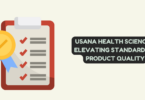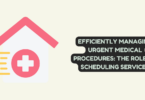
Document Management
In today’s fast-paced business environment, managing documents efficiently is critical in driving productivity and maintaining a competitive edge. Unfortunately, traditional paper-based document management systems are no longer practical and effective in meeting the demands of modern organizations. That’s where enterprise document management comes into play. By leveraging technology and advanced software solutions, businesses can streamline their document processes, enhance collaboration, and significantly improve productivity and efficiency. In this article, we will highlight the impact of enterprise document management on organizations and how it can revolutionize the way businesses handle their documents.
Streamlined Document Organization and Retrieval
One of the primary benefits of enterprise document management is the ability to organize and retrieve documents quickly and easily. With a robust document management system, businesses can establish a centralized repository where all documents are stored digitally. This eliminates the need for physical filing cabinets and manual searching, saving valuable time and reducing the risk of misplaced or lost documents. In addition, through advanced search functionalities and metadata tagging, employees can retrieve the correct document in seconds, resulting in increased productivity and efficiency.
Enhanced Collaboration and Version Control
Collaboration is essential for modern businesses, especially those with remote teams or multiple stakeholders involved in document creation and review processes. Enterprise document management systems provide a collaborative platform where multiple users can simultaneously access, edit, and comment on documents. This real-time collaboration eliminates the need for email chains and ensures everyone is working on the latest version of a document. In addition, document management software typically includes version control features, allowing users to track changes, compare old records, and revert to previous versions if needed. This streamlined collaboration and version control enhance efficiency and productivity, particularly in projects that require extensive document collaboration.
Automated Workflows and Process Automation
Enterprise document management enables businesses to automate workflows and streamline document-centric processes. Workflow automation eliminates manual tasks, reduces errors, and accelerates document routing and approval processes. Likewise, a document management system can automatically route an invoice for approval, notify relevant stakeholders, and track the progress of the approval cycle. In addition, automating repetitive and time-consuming tasks allows employees to focus on more strategic activities, improving productivity and efficiency across the organization.
Improved Document Security and Compliance
Data security and compliance are important concerns for businesses today. Enterprise document management systems offer robust security features to protect sensitive information. For example, role-based access controls ensure that only authorized personnel can view, edit, or share specific documents. Encryption technologies and secure authentication mechanisms further safeguard data from unauthorized access. Additionally, document management software helps organizations comply with industry regulations by maintaining an audit trail of document activities, implementing retention policies, and facilitating secure document sharing. These security and compliance measures instill confidence in customers, partners, and regulatory bodies while avoiding potential fines and reputational damage.
Mobile Access and Remote Work Capabilities
The rise of remote work culture and the need for mobile access to documents have become increasingly crucial for businesses. Enterprise document management systems empower employees to access and collaborate on documents from anywhere, anytime, using their preferred devices. As a result, employees can stay productive and contribute to document-related tasks seamlessly, whether working from home, on the road, or in client meetings. This mobility and flexibility facilitate efficient remote work arrangements and allow businesses to adapt to changing work dynamics.
Efficient Document Archiving and Retrieval
Businesses generate a significant volume of documents, and managing long-term document storage can be daunting. Enterprise document management simplifies archiving and retrieval of older documents. Rather than relying on physical storage or off-site facilities, digital archiving ensures documents are preserved, organized, and easily accessible. Advanced search capabilities enable quick retrieval of archived documents, eliminating the need for time-consuming manual searches. Efficient document archiving and retrieval contribute to productivity by reducing the time and effort spent managing vast document repositories.
Conclusion:
Enterprise document management profoundly impacts productivity and efficiency within organizations. By adopting digital solutions and leveraging advanced software capabilities, businesses can streamline document processes, enhance collaboration, automate workflows, improve security, and enable remote work. Embracing enterprise document management saves time and resources and empowers employees to work more effectively and contribute to the organization’s overall success. As businesses continue to evolve, investing in document management solutions becomes imperative to stay ahead in a competitive marketplace.






